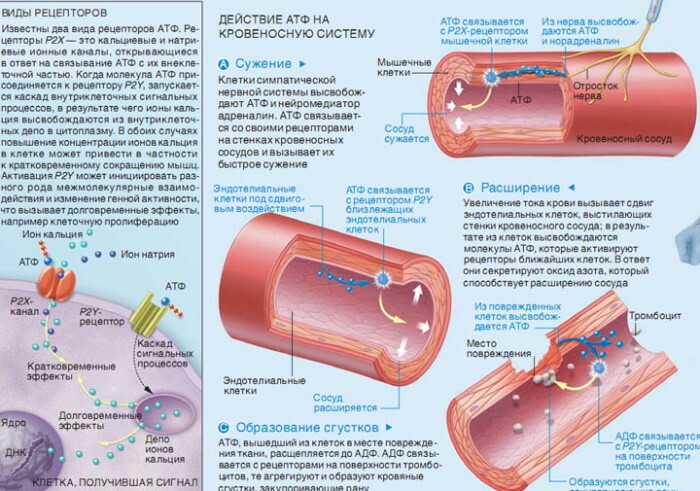Content
- Characteristics
- Properties and functions
- Classification
- T-lymphocytes
- B-lymphocytes
- NK cells
- Decrease symptoms
- Reasons for downgrading
- Diagnostics
- Regulation methods
- Vitamin Supplements
- Food
- Physical exercise
- Other
- Possible consequences and complications
- Video about lymphocytes
Decrease in lymphocytes during pregnancy - This is a circumstance that happens to all women in the process of bearing a fetus. In particular, the phenomenon of decline occurs continuously from the 1st to the beginning of the 3rd trimester. Further, the number of lymphocytes increases again, although before childbirth it will not reach the level that is considered the norm for the female body in the period before conception.
Characteristics
Lymphocytes are defined as a type of white blood cell that has the function of an immune response to all kinds of foreign bodies or infections that enter the body. It is defined as lymphocytosis and is common in pregnant women.
Lymphocytes, commonly referred to as "defense mechanisms", are a class of white blood cells that carry responsible for preventing the formation of tumors in cells, protecting the body from the effects of viruses and keeping immune memory.
Properties and functions
Lymphocytes act as a defense against invading foreign organisms, and persistently low levels can lead to more infections than usual. The decrease in lymphocytes in the blood is usually also considered as a percentage of the total number of leukocytes (below 20%), although it is always best to carry out the study on the basis of absolute values.
During gestation, the fetus is perceived by the female body as a foreign body, since it consists of genetic material emanating from both the father and the mother. This leads to the automatic activation of protective functions, in which lymphocytes play a leading role. In order to combine with the protection of the fetus, the immune system decreases its activity. The body begins to compensate for the suppression of lymphocytes.
Certain types of leukocytes and neutrophils are activated. Therefore, a high neutrophil count and a low lymphocyte count during pregnancy is normal. On the other hand, when the white blood cell count is high, it is a sign that proper filtration of fetal waste is taking place.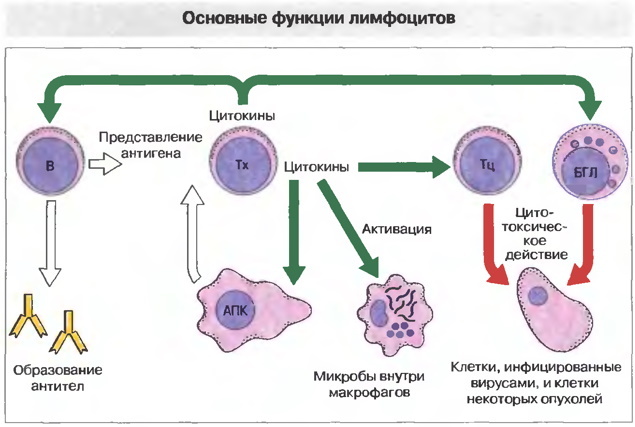
In 80% of cases, leukocytes decrease during gestation. Usually, the number of leukocytes is 40% of the total, and during pregnancy there is a decrease in the level of up to 18% of the total.
Classification
There are 2 main groups of lymphocytes.
T-lymphocytes
They have several subspecies:
- T-killers - recognize genetically "alien" intrusions into the body and are aimed at destroying them.
- T-hellers - auxiliary, include cells for the production of antibodies and protective protein structures.
- T-suppressors - are responsible for stopping the immune response.
When genetically foreign material enters the body, T-killers are the first to begin to recognize it.
Various kinds of foreign material act as:
- parasites;
- viruses;
- fungi;
- bacteria.
With intolerance to certain foods, T cells can act as foreign material and deplete the number of lymphocytes in the blood.
B-lymphocytes
This is a group of lymphocytes that leave the bone marrow immature and are sent to the blood, liver, spleen and lymph nodes, where they mature further. The main function of B-lymphocytes is the production of blood immunity cells and antibodies to fight bacteria and viruses of all kinds.
NK cells
The production of this type of cells is intended to protect the body from cancer. This type of cells is considered natural killer cells that function in an anti-tumor direction. 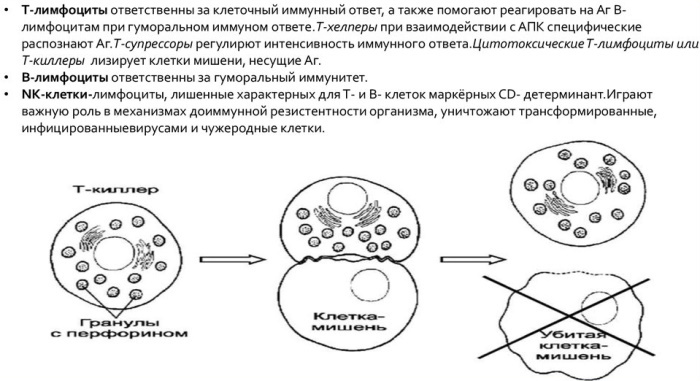 NK - cells are the main type of lymphocytes.
NK - cells are the main type of lymphocytes.
Decrease symptoms
Symptoms of a decrease in lymphocytes can manifest themselves in the following conditions:
- deterioration in general health;
- respiratory diseases;
- excessive manifestation of toxicosis;
- dizziness;
- loss of appetite;
- infectious diseases.
Symptoms may appear mainly in the first 2 trimesters. Most often, the decrease in leukocytes occurs in the 1st trimester, when the body needs to adapt to the appearance of the fetus and adjust all its functions for its increased protection. The main and necessary is the planned control of leukocytes at all stages of pregnancy by passing the necessary tests and observation by a gynecologist.
Reasons for downgrading
Lymphocytes are lowered during pregnancy 1-3 trimesters for many reasons. In most cases, deviations are associated with acquired pathologies and usually do not have a hereditary component.
The most common are:
- Infections:
- HIV;
- flu;
- miliary tuberculosis;
- typhoid fever.
- Medicines:
- antineoplastic drugs;
- antidepressants;
- immunosuppressants;
- psychopharmaceuticals;
- corticosteroids;
- opioids;
- lithium;
- drugs that are used in chemotherapy.

- Chemotherapy and radiation therapy also reduce the level of lymphocytes in the blood.
- Systemic diseases:
- Hodgkin's lymphoma;
- lupus;
- arthritis;
- myasthenia gravis.
- When the cause is hereditary, it may be due to:
- Wiskott-Aldrich syndrome;
- Di Giorgi syndrome;
- Louis-Barr syndrome (ataxia telangiectasia);
- hypoplasia of cartilage and hair.
The listed diseases are quite rare, but they cannot be ruled out.
Lymphocytes can also be lowered during pregnancy in the 1-2 trimesters due to the following reasons:
- Malnutrition.
- Obesity.
- Alcoholism.
- Low level:
- folic acid;
- gland;
- Selena;
- vitamins A, E, C and B6.
It is worth noting that the use of the following drugs also negatively affects:
- Asparaginase;
- Cladribine;
- Chlorambucil;
- Fluradabin;
- Mechlorethamine;
- Methotrexate;
- Bupropion;
- Prednisone;
- Dimethyl Fumarate;
- Alemtuzumab;
- Rituximab;
- Interferon;
- Niacin.
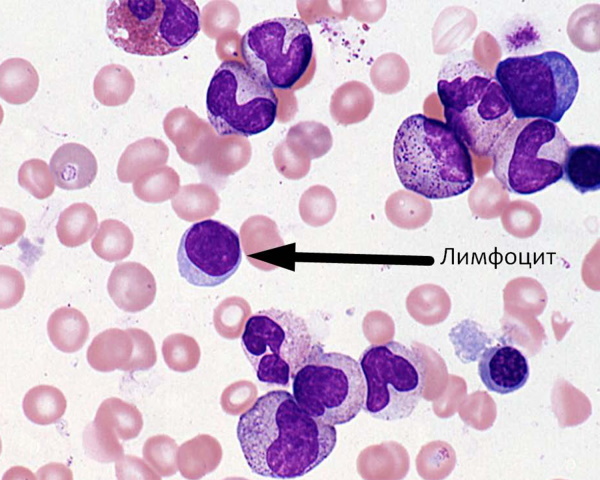
Lymphocytes are lowered during pregnancy 1-3 trimesters, sometimes due to vitamin D. Experts recommend that pregnant women avoid taking this vitamin in supplements, as it can lead to food allergies. The reason is that vitamin D reduces the normal growth of T-lymphocytes in the cord blood, which leads to a decrease in lymphocytes at all stages of pregnancy.
Lymphocytes are lowered during pregnancy 1-3 trimesters, sometimes due to a condition in the thymus (lymphoid glandular organ), in which T-lymphocytes mature. However, with the exception of the aforementioned reasons, low lymphocyte counts during pregnancy are usually due to increased secretion of hormones (estrogens, progesterone).
On the other hand, the lymphocyte count during pregnancy can be low due to gastritis, allergic reactions, or poor diet. Exposure to radiation (X-rays) can decrease the number of lymphocytes. Zinc deficiency can interfere with the proper formation of lymphocytes, thus reducing their levels.
In 25% of cases, the cause of the decrease in lymphocytes is not found.
A low white blood cell or white blood cell count indicates a weakened immune system and may have many reasons not pregnancy-related (from emotional state and stress to unhealthy diet), so the best strategy is their natural increase.
Separately, you need to pay attention to stress - it is not just an emotion, it has physical consequences. In fact, if it is a chronic condition, it can negatively affect the immune system, and also overload the body's resources, which can reduce the function of the immune system by lowering lymphocytes.
Diagnostics
Lymphocytes are measured by taking a blood test in a series of white blood cells. Usually, their absolute value and %% are indicated, which they represent from the total number of leukocytes.
Indicator rates in 1-3 trimester of pregnancy:
| Index | Adult women | Pregnant women (clinical picture in trimesters) | ||
| 1 | 2 | 3 | ||
| Lymphocytes,% | 20−25 | 27−29 | 25−27 | 25−27 |
 Tests must be taken at least 1 time per trimester or more, according to the recommendations of the leading gynecologist. A blood test is taken after the pregnant woman has been fasting for 6 hours. This usually occurs in the morning on an empty stomach, since food intake changes many parameters. The sample is sent to the laboratory for testing.
Tests must be taken at least 1 time per trimester or more, according to the recommendations of the leading gynecologist. A blood test is taken after the pregnant woman has been fasting for 6 hours. This usually occurs in the morning on an empty stomach, since food intake changes many parameters. The sample is sent to the laboratory for testing.
It is advisable not to drink liquids before taking tests, but experts sometimes allow you to drink pure, non-carbonated water. Fatty foods, excessively salty and all fried foods must be excluded from the diet 3 days before testing (during pregnancy, it is better to exclude unhealthy foods from the diet altogether). In the presence of infectious, viral or fungal diseases, it is necessary to notify the doctor in advance. Also, it is necessary to inform about the intake of all medications, as they can affect the indicators of leukocytes in the blood.
Using a hemogram, which measures the concentration of each of the cellular elements present in the blood (for example, as occurs with erythrocytes or leukocytes), you can get accurate and reliable results in terms of lymphocytes in blood. It should be remembered that the vast majority of pregnant women are not able to adequately interpret the test results. Therefore, the numbers can best be explained by a leading gynecologist.
Lymphocytes are lowered during pregnancy 1-3 trimesters - this is not a disease and not a cause for concern, but specialists must constantly monitor whether the pregnancy is proceeding normally.
Regulation methods
The problem of a decrease in lymphocytes can be solved after receiving the test results and determining the cause of the decrease. If the cause is pregnancy, then there is no need to treat low leukocytes. If other factors are the reason, then the specialist prescribes treatment corresponding to the reason for the decrease: vitamins are prescribed, more iron and protein are added to the diet.
Pregnancy planning, doctors recommend postponing to the autumn period, in which case the third trimester will come in the summer, when the immune system is considered the most effective of all seasons.
Vitamin Supplements
Doctors prescribe special complexes of vitamins and minerals, which were developed specifically to improve the course of pregnancy and replenish elements in a woman's body. Vitamins can be prescribed in a complex or separately if one of the essential substances is lacking.
The most commonly prescribed vitamins are: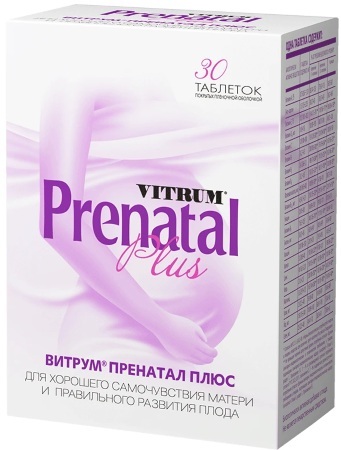
- Vitrum Prenatal - rich in folic acid and iron, it is an indispensable drug for pregnant women with IDA. These vitamins lack iodine.
- Alphabet - this drug is considered unique, because with the help of multi-colored tablets, into which it is divided into groups of minerals and vitamins, it is possible to pick up exactly those components that are lacking in the body and not take those that a pregnant woman receives in full from food sources.
- Pregnazole Conflict - a vitamin complex consisting of minerals, vitamins and omega-3 fatty acids. Ideal for fetal brain and eye development.
- Natalben Supra - a vitamin complex that helps to meet the nutritional needs of women during pregnancy, since the body's need for vitamins increases within 9 months, minerals and trace elements, also provides an additional supply of folic acid (vitamin B9) and vitamin B2 necessary for cell reproduction and division, especially in the early stages pregnancy.
- Pronatal 2 - food supplement for pregnant women, prescribed from the 2nd trimester of pregnancy. Starting from this trimester, the mother's nutritional needs increase, since it is during this period that the baby grows and he needs an additional supply of nutrients. Helps meet the body's need for vitamins, minerals and omega-3 fatty acids.
- Vitamin B12 - promotes the formation of blood cells and the nervous system. Often prescribed for low lymphocyte counts.
- Vitamin C - participates in the formation of connective tissue, helps to strengthen the body's defenses and promotes the absorption of iron.
- Vitamin E - has antioxidant properties.
- Multicenter - help to maintain a healthy diet, supplement the contribution of micronutrients to the body and reduce tiredness and fatigue. Specially balanced formula with 13 vitamins and 11 minerals, high in:
- vitamin D;
- B vitamins;
- biotin;
- folic acid;
- calcium, iron and magnesium.
Among other things, it contributes to:
- proper functioning of the immune system;
- preservation of vision;
Also intended for health:
- skin;
- hair;
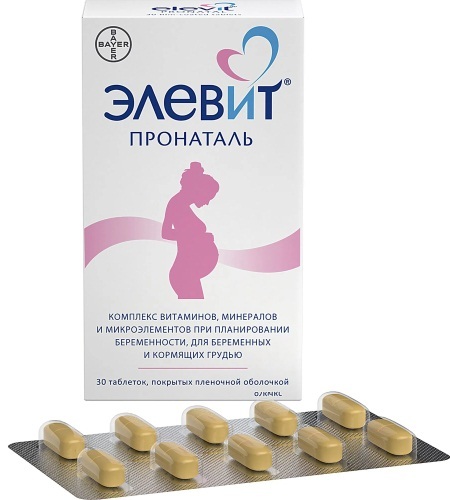
- nails;
- bones.
- Complivit Mom - Replenishes the deficiency of certain vitamins and microelements. It is prescribed for pregnant women who have a varied, nutritious diet, but the body does not receive certain nutrients.
- Elevit Prenatal - complex vitamins, rich in magnesium, but they lack iodine. Prescribed to pregnant women with low levels of magnesium required by the body.
- Iodine - a very important mineral that is needed for the proper functioning of the thyroid gland, taking 400 mcg of folic acid on the day before pregnancy reduces the risk of developing birth defects and an excessive decrease in lymphocytes in the body.
Food
If the fetus develops normally according to the term, without pathologies, the pregnant woman should eat 4 times a day. Half of the protein in the daily diet should be animal protein (meat, fish - 25%, 20% - dairy products, 5% - eggs).
The need for vegetable protein is satisfied:
- legumes (mung bean, peas, beans);
- rice;
- cabbage;
- potato.
In addition to sugar as a source of carbohydrates, it is advisable to use bread, cereals, fruits. It is not recommended to consume beef, pork and lamb during pregnancy.
Adequate nutrition is one of the main conditions for a successful pregnancy and good fetal development. The diet should be nutritious, varied, rich in protein and vitamins, including folic acid, vitamin C. Food is a good, natural option for strengthening the immune system as it helps boost the body's defenses through more stimulation and production of white blood cells.
Foods that increase the level of white blood cells:
- Black tea. According to research, drinking 5 cups of black tea a day causes a 4-fold increase in the immune system's defenses due to theanine in as little as 2 weeks.
- Mushrooms. They contain selenium, which helps white blood cells to produce:
- cytokines to kill disease;
- beta-glucan is a type of antimicrobial agent that activates cells that detect and kill infection.
- Bitter chocolate. Studies say this food boosts immunity, which protects against diseases, including respiratory diseases.
- Beta carotene. This substance improves the body's defenses, which is necessary for the growth and development of cells of the immune system, it helps to neutralize toxins. It is found in foods such as carrots, sweet potatoes, and courgettes.
- Zinc. This mineral is essential for the functioning of white blood cells and acts as a catalyst for the immune system's deadly response to foreign bodies. Products containing zinc:
- peanut;
- eggs;
- sprouted wheat;
- sunflower seeds.
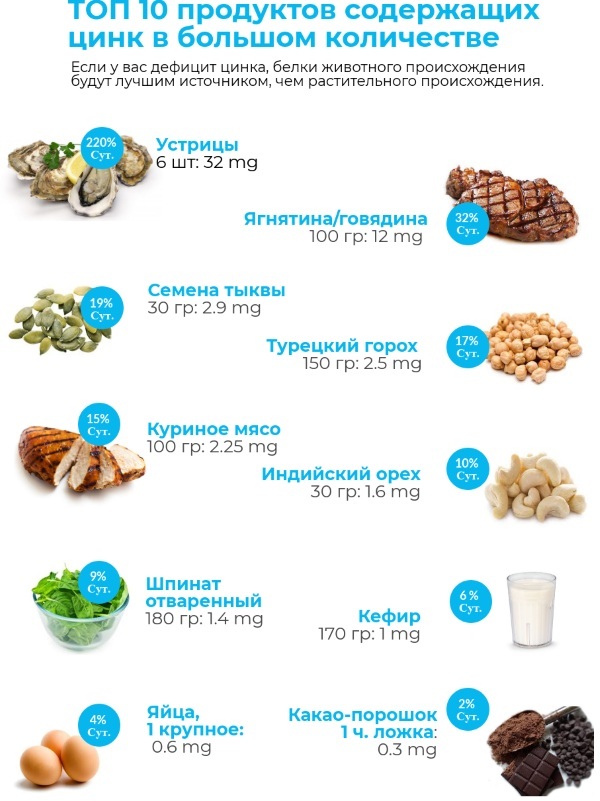
- Yogurt can be very beneficial for the immune system, it helps in the production of antibodies and strengthens the growth of white blood cells.
If you consume these foods regularly every week, your white blood cells will naturally increase. A balanced diet ensures that the right nutrients reach the bone marrow, the place where white blood cells and proteins are produced that help form these important defenders of the immune systems. For their part, carbohydrates are also important because they provide energy, but in excess, they can decrease lymphocyte count and trigger a lower immune response.
It is also necessary to include in the diet foods that increase immunity:
- garlic;
- almond;
- cabbage;
- blueberry;
- raspberries.
Physical exercise
Exercise improves cardiovascular health and reduces the likelihood of chronic disease. Exercise increases blood flow and increases the elimination of harmful metabolites from the body, which helps the immune system to function properly. A pregnant woman should do light exercise. Depending on the gestational age, a special set of gymnastic exercises is recommended.
It is advisable to do exercises 5-7 times a week for 30 minutes. It is recommended to start at 10 minutes. per day and increase up to 30 minutes. Regular exercise during pregnancy is an important factor in the development of the fetus, facilitating labor and maintaining all the necessary parameters in the norm.
Although this aspect is rarely addressed, exercising improves not only your physical condition, but also your mood. Practices such as yoga, Pilates, or any other sport you enjoy can help produce endorphins and the body's natural defenses.
Other
If the pregnant woman regularly takes medications such as corticosteroids, the lymphocyte count can be increased by reducing the dose.
Alcohol should be excluded during the period of gestation, including due to the fact that it lowers lymphocytes in the blood and has harmful actions aimed at improper development of the fetus.
Possible consequences and complications
During pregnancy, the body becomes vulnerable to many parasitic diseases, also microbial and others. The immune system of a pregnant woman protects the organisms of the expectant mother and the fetus. She fights infections, so it often weakens during this period.
The test results can show the rate of lymphocytes according to the trimester, but it is important to understand that the immunological barrier is lowered in any case. It follows from this that various microorganisms can enter the body of a pregnant woman, and it becomes vulnerable to their effects.
An excessive decrease in lymphocytes during pregnancy, especially in the 1st and 2nd trimester, can increase the likelihood of infection with harmful bacteria and microbes. Therefore, it is important to protect your body and follow a healthy lifestyle.
Video about lymphocytes
What does a decrease in lymphocytes in the blood mean:

